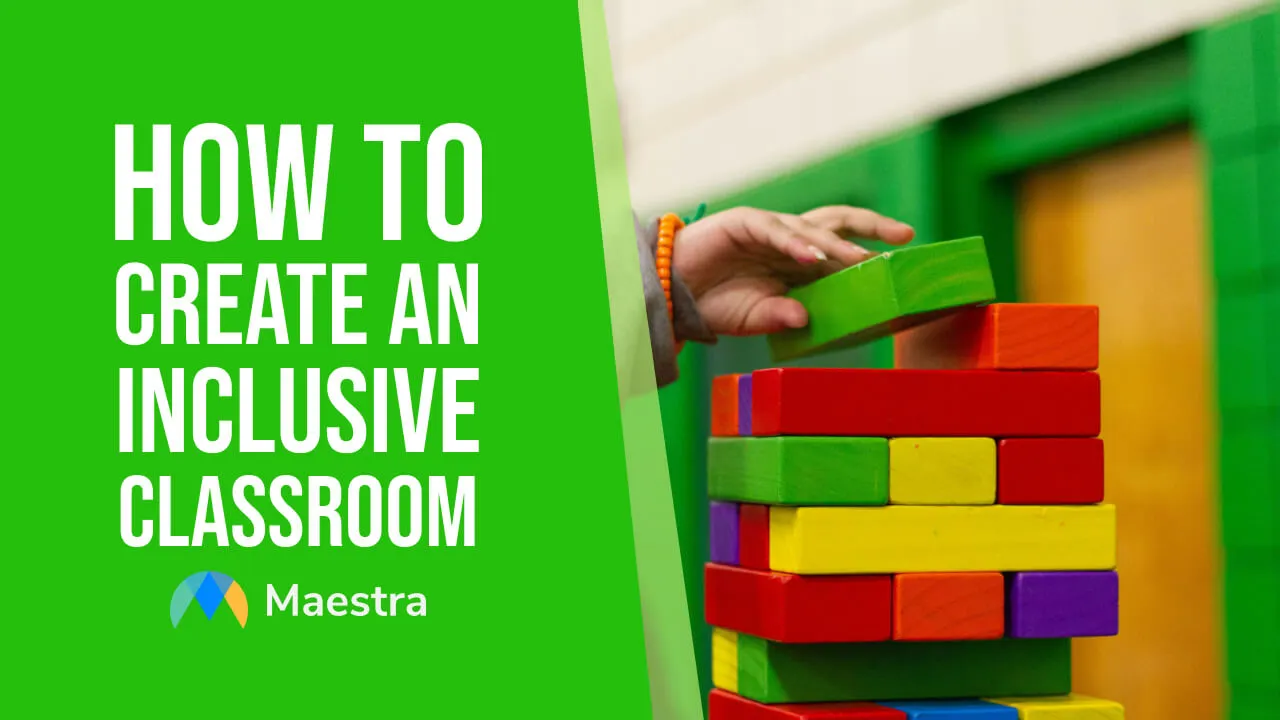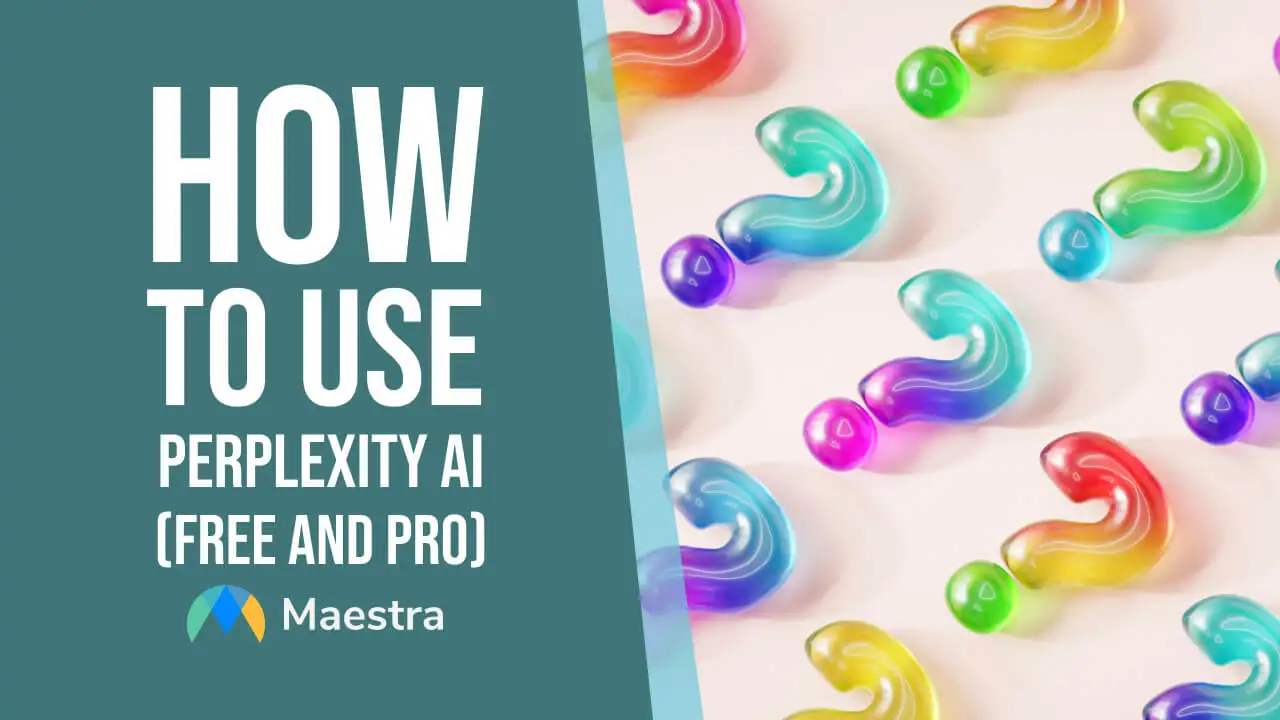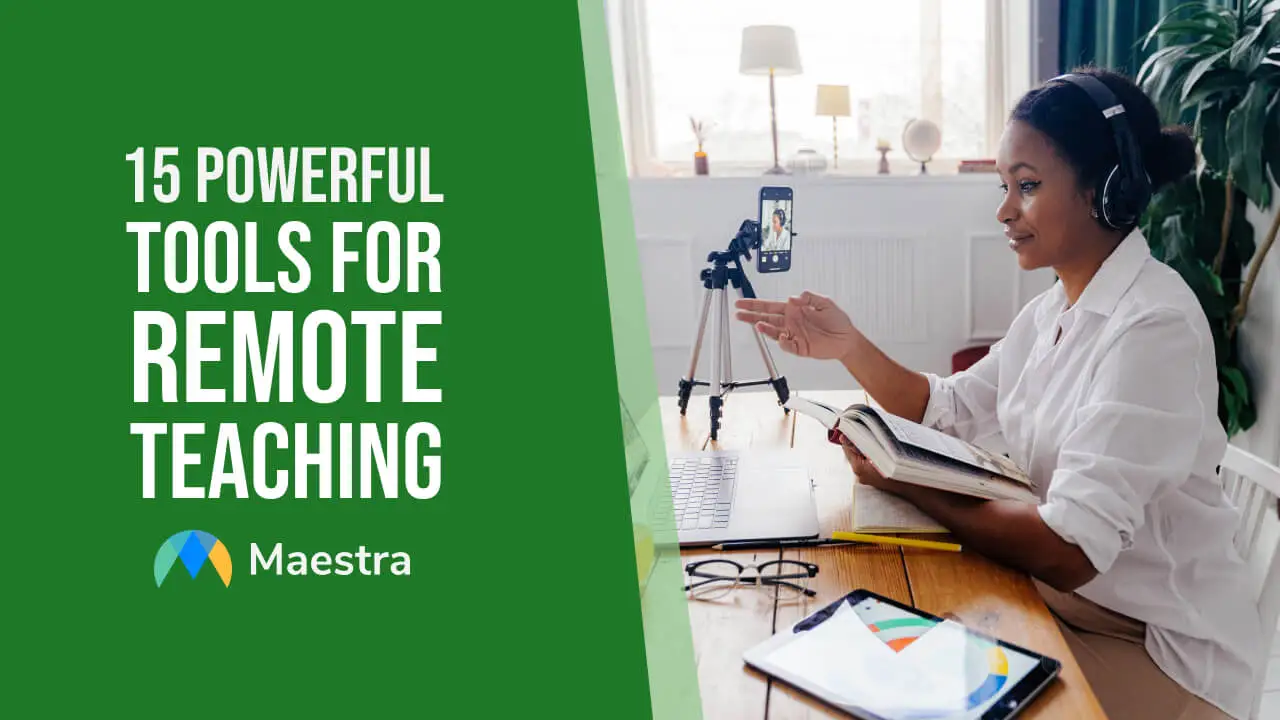15 Best AI Tools for Teachers to Use in 2025

The perfect blend of artificial intelligence and human experience can transform a teacher’s life, and in a very positive way. With AI tools, teachers can save time on lesson planning and grading, create course materials faster, and make learning more inclusive. These technologies don’t replace the human side of teaching; they enhance it, giving educators more freedom to focus on what matters most: inspiring and connecting with their students.
In this blog, we’ll cover:
- The 15 best AI tools for teachers
- Best practices for using AI responsibly and effectively in education
- A FAQ section with answers to common teacher questions about AI adoption
Let's get started.
Top AI Tools for Teachers: Lesson Planning, Grading & More
Below, we've rounded up the 15 best AI tools for teachers across different categories, from lesson planning and grading to accessibility and classroom engagement.
In the table, you’ll get a quick overview of what each tool is for, why it’s valuable, and its pricing. After that, you’ll find detailed descriptions and real-world classroom examples to help you decide which tools fit your teaching needs best.
| Tool: | For: | Why it's great: | Pricing: |
| Maestra | Real-time and on-demand transcription and translation in 125+ languages | Breaks language and accessibility barriers | Free trial available; real-time plans start at $39/month; custom enterprise pricing |
| MagicSchool AI | Curriculum design and lesson planning | Provides high level of customization | Free plan available; Plus plan is $99.96/year, custom pricing for educational institutes |
| ChatGPT | Idea generation | Versatile and easy-to-use | Free plan available; Plus plan is $99.96/year, custom pricing for educational institutes |
| Kahoot! | Gamification | Makes learning fun | Standard plan is $14.99/month, Pro plan is $24.99/month, custom pricing for the Premium plan |
| Wayground | Personalized learning | Ensures learning for all students | Free Starter plan; custom pricing for schools and districts |
| Power BI | Data visualization and analysis | Turns raw data into actionable insights | Free plan available; Pro plan is $16.80/month |
| Canva | Content creation | Creates captivating visuals in seconds | 100% free for K-12 teachers at eligible schools; custom pricing for universities |
| Quillbot | Detecting AI-generated text | Clearly distinguishes between AI-generated and AI-refined text | Free |
| Reclaim | Smart scheduling | Eliminates back-and-forth emailing | Free plan available; Starter plan is $10/month, custom enterprise pricing |
| Coursebox | Grading and assessment | Speeds up the grading process | Creator plan is $13/month; custom enterprise pricing |
| Visme | Visually appealing presentations | Transforms complex information into easily digestible content | Free plan available; Starter plan is $29/month; custom enterprise pricing |
| Wolfram|Alpha | Solving complex math problems | Computes step-by-step solutions and provides detailed explanations | Free Basic plan; Pro plan is $9.99/month, Pro Premium plan is $12.99/month |
| Duolingo | Language learning | Uses OpenAI’s GPT features for personalized lessons | Free access for schools |
| Tynker | Coding education | Simplifies coding with interactive lessons, projects, and games | Free plan available; custom pricing for classrooms, schools, and districts |
| Speechify | Text-to-speech (TTS) solutions | Converts text to audio to increase accessibility | Custom pricing for schools and teams |
Let’s take a closer look at how each of these tools works in practice.
1. Maestra
Particularly useful for: teachers who have students with diverse language needs or accessibility requirements
Maestra helps teachers break language barriers with its live voice translator, supporting 125+ languages and providing real-time captions in the target language. Beyond live translation, it also offers on-demand transcription, subtitle generation, and voiceover tools, all enhanced with intelligent features like AI summaries, fact-checking, and quiz generation.
In practice: An English teacher can use live captions and post-lecture transcripts to make classes more accessible for students with hearing impairments.
Pricing: Free trial for live transcription; real-time plans start at $39/month. See more on pricing.
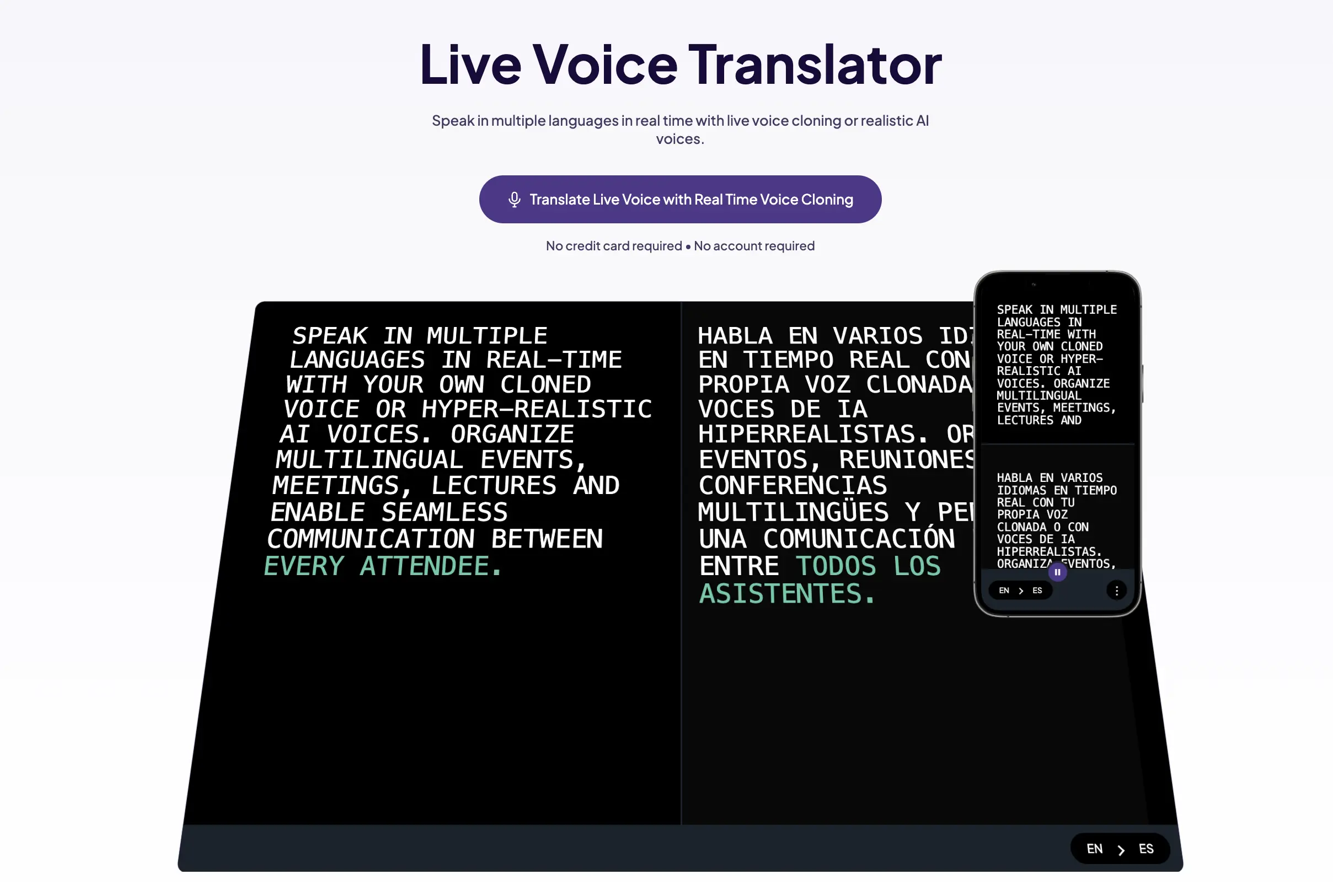
2. MagicSchool AI
Particularly useful for: novice teachers
With MagicSchool AI’s Lesson Plan Generator, teachers gain a structured starting point for creating comprehensive and engaging lesson plans. The tool ensures that the AI-generated plans align with educational standards without compromising customization.
In practice: A new teacher can quickly generate a standards-aligned lesson plan for a history unit.
Pricing: Free plan available; Plus plan is $99.96/year. See more on pricing.
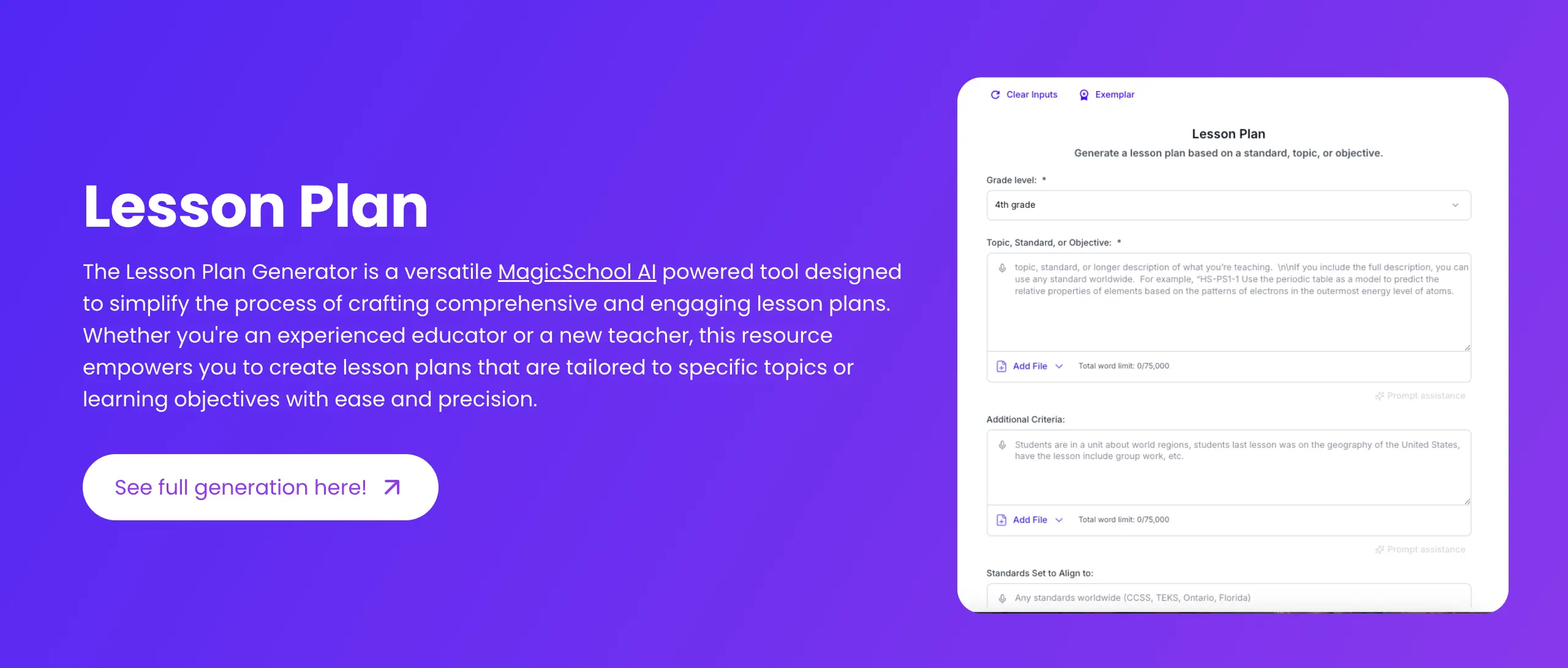
3. ChatGPT
Particularly useful for: all teachers
One of the toughest parts of a teacher’s job is constantly coming up with new ideas, and ChatGPT is the cure to this challenge. By writing effective prompts, teachers can use the beloved LLM to generate classroom activities, extracurricular programs, and attention-grabbing content.
In practice: A science teacher can brainstorm creative lab activities by writing targeted prompts.
Pricing: Free plan available; Plus plan is $20/month. See more on pricing.

4. Kahoot!
Particularly useful for: middle school teachers
You might be familiar with Kahoot!, but are you utilizing its AI-powered features? Thanks to these advanced capabilities, you can create games and questions by just uploading a PDF, adding a URL, or describing what you need to the tool’s GPT-powered model.
In practice: A middle school teacher can upload a PDF to instantly create an interactive quiz game.
Pricing: Standard plan is $14.99 per host per month. See more on pricing.
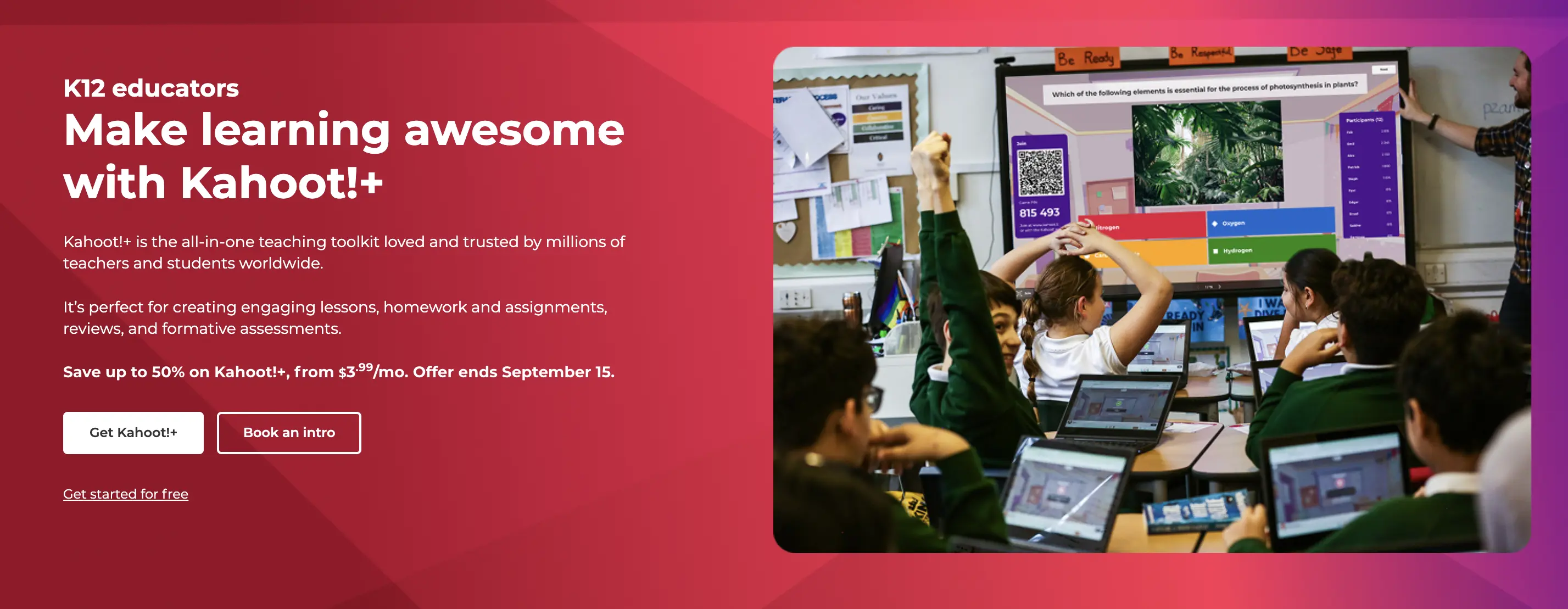
5. Wayground
Particularly useful for: teachers who have students with diverse learning styles
As one of the best AI tools for teachers, Wayground lets you customize lessons and quizzes based on individual student data and unique needs. With its AI Enhance feature, you can modify questions with ready-to-use prompts (e.g. convert it to a real-life scenario) and provide personalized practices for every student.
In practice: A math teacher can adapt practice problems to match each student’s learning style.
Pricing: Free Starter plan available; custom pricing for schools and districts.
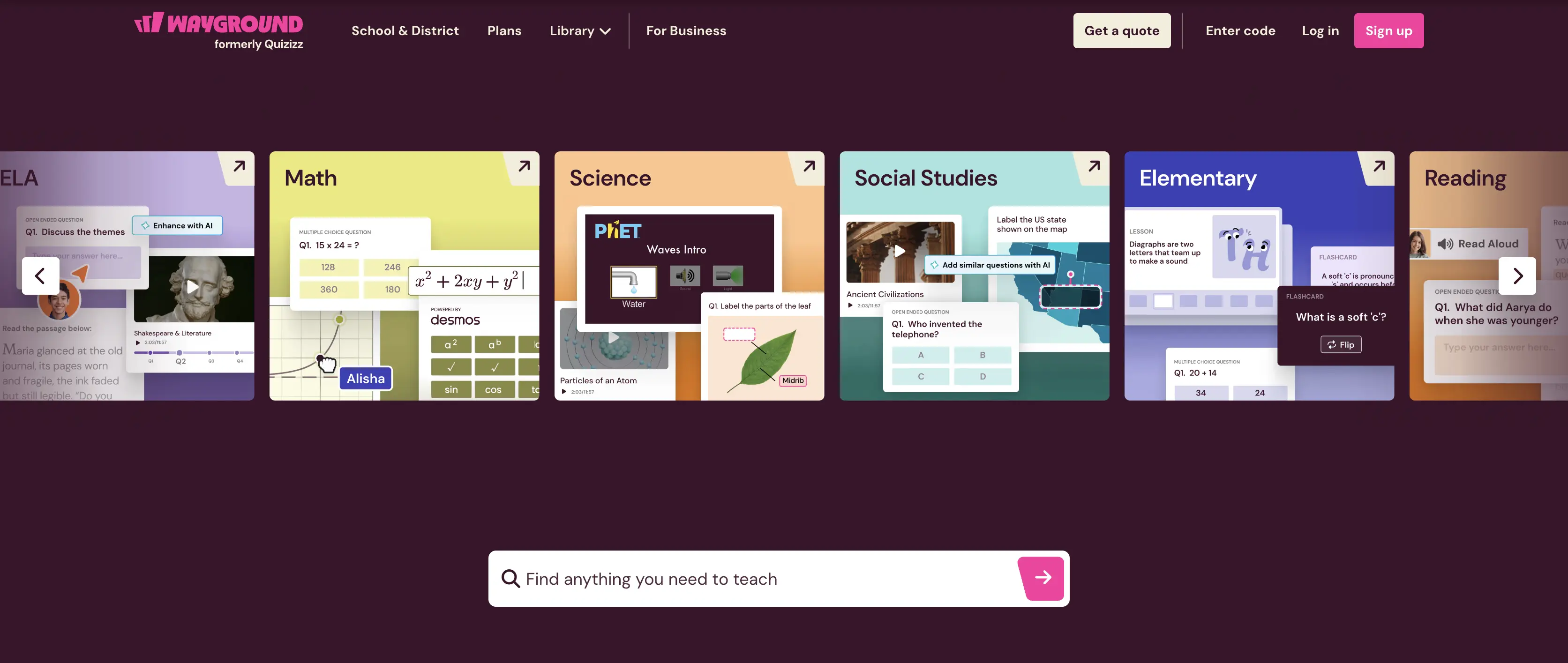
6. Power BI
Particularly useful for: all teachers
Microsoft’s Power BI is among the top AI tools for teachers as its “Natural Language Query (NLQ)” feature allows you to directly type your questions and get quick insights about your data. Plus, with interactive dashboards for key metrics like attendance and grades, the tool makes it much easier to identify patterns and trends.
In practice: A teacher can monitor homework submission rates to spot early signs of disengagement.
Pricing: Free plan available; Pro plan is $16.80/month paid yearly. See more on pricing.
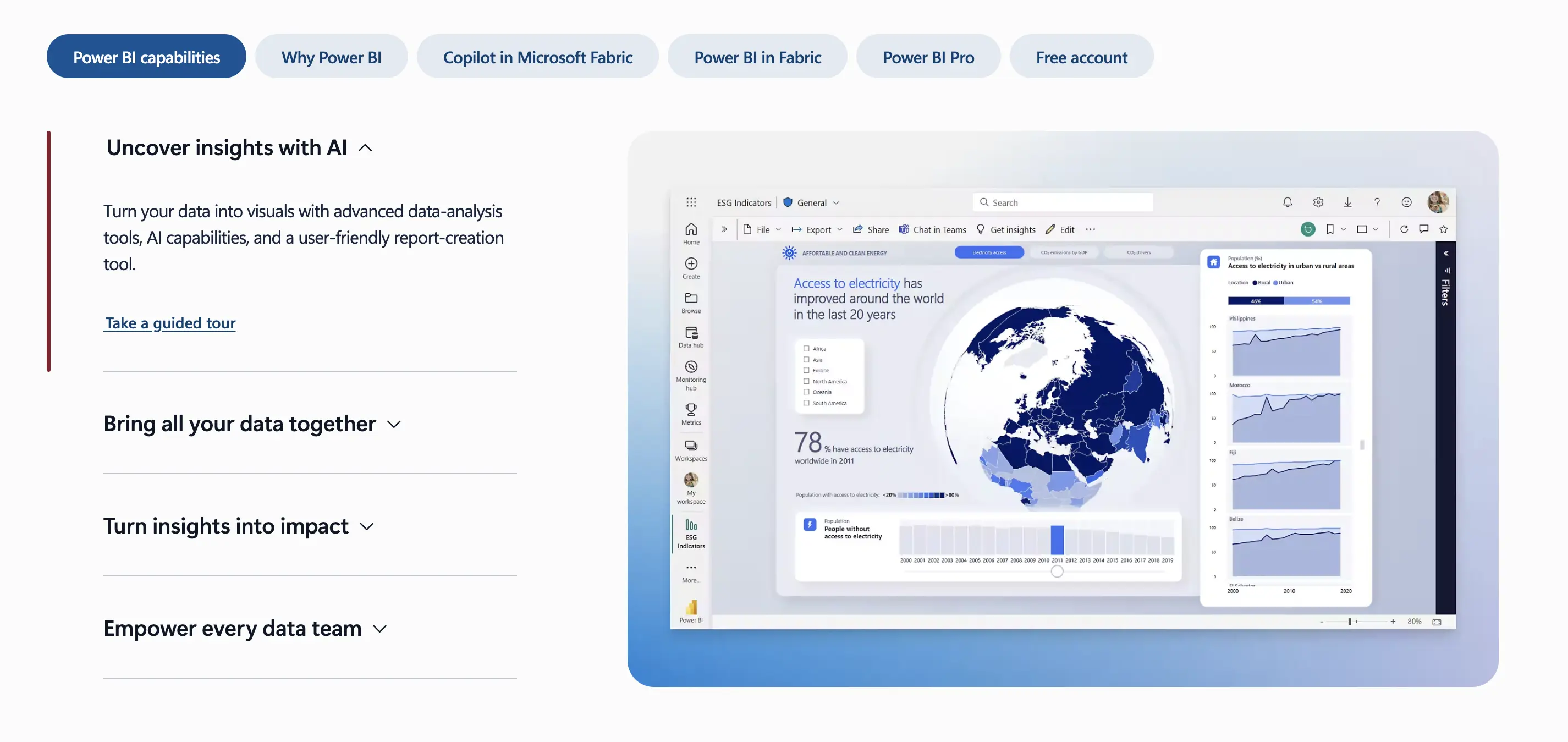
7. Canva
Particularly useful for: teachers who rely on visuals
Every teacher can become a content creator with Canva’s Magic Studio, which offers a bunch of AI-powered tools, ranging from a text-to-video generator to a presentation maker. Utilize them to speed up your preparation process, customize your teaching materials, and have a lot of fun along the way.
In practice: A philosophy teacher can turn a unit outline into a polished presentation in minutes.
Pricing: 100% free for K-12 teachers at eligible schools. See more on pricing.
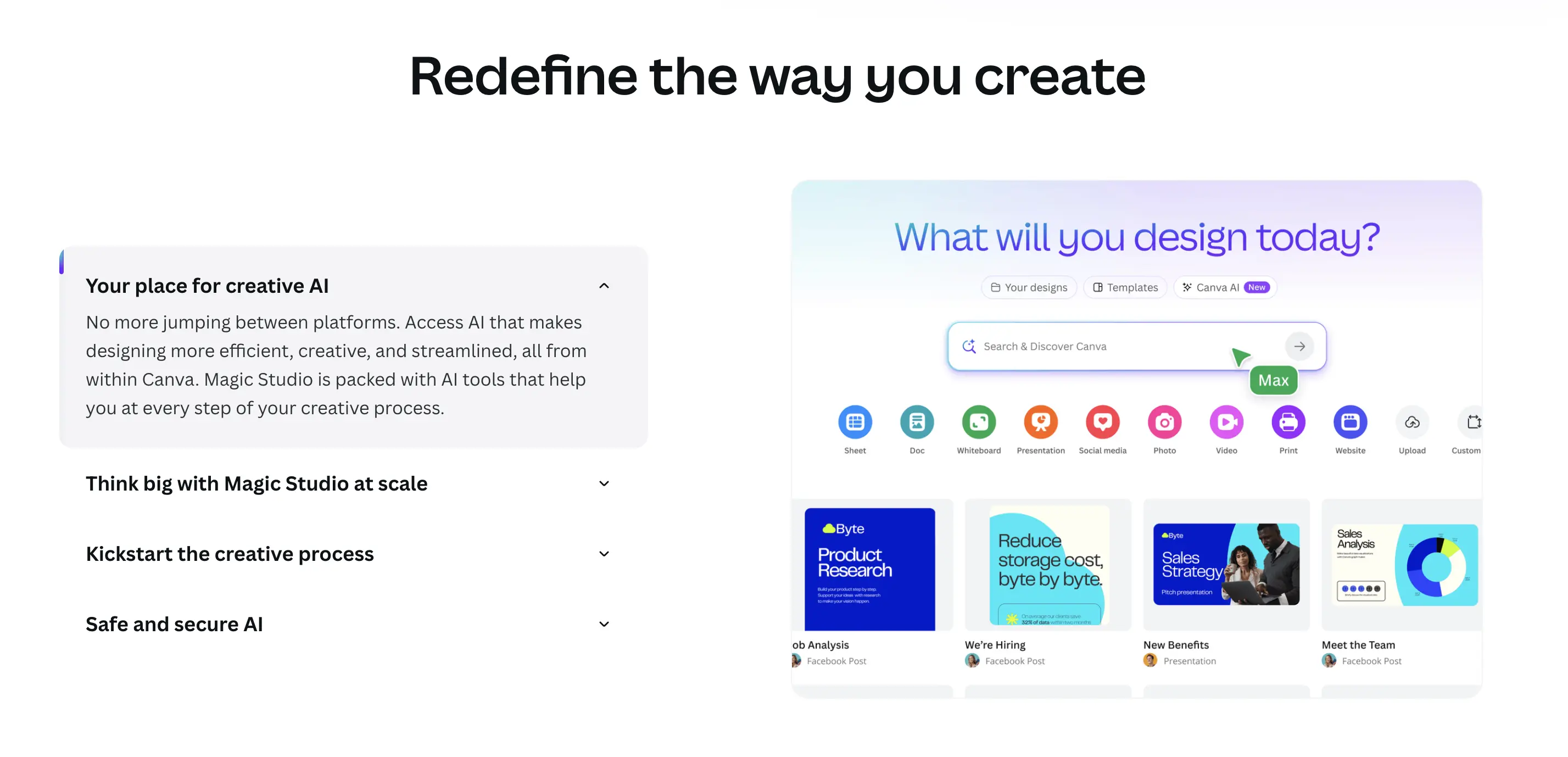
8. Quillbot
Particularly useful for: high school and college teachers
Trained with advanced algorithms, Quillbot’s AI Content Detector is one of the best AI tools for teachers to maintain academic integrity. Besides identifying repeated words, awkward phrases and unnatural flow, the software can know exactly which part of the text appears AI-generated.
In practice: A college professor can check essays for awkward phrasing or AI-generated text.
Pricing: Free to use.
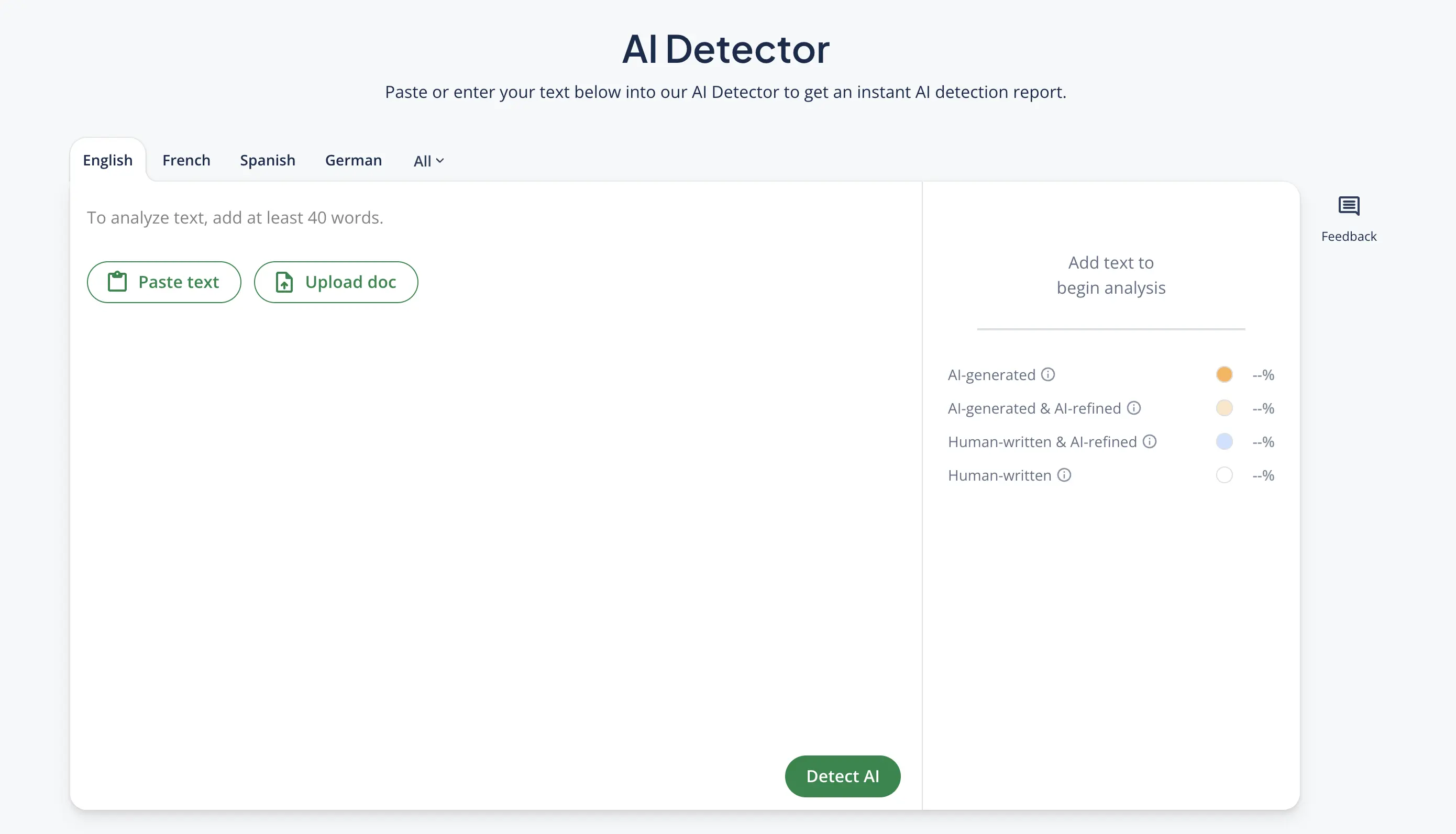
9. Reclaim
Particularly useful for: high school and college teachers
In the busy flow of office hours and meetings, Reclaim can help teachers by automatically scheduling tasks, prioritizing to-dos, and finding optimal time slots for everything on their calendar. The best feature is that you can customize and share the times you’re available, which reduces scheduling conflicts and miscommunication.
In practice: A teacher juggling office hours and grading can automatically find the best meeting slots.
Pricing: Free plan available; Starter plan is $10/month. See more on pricing.
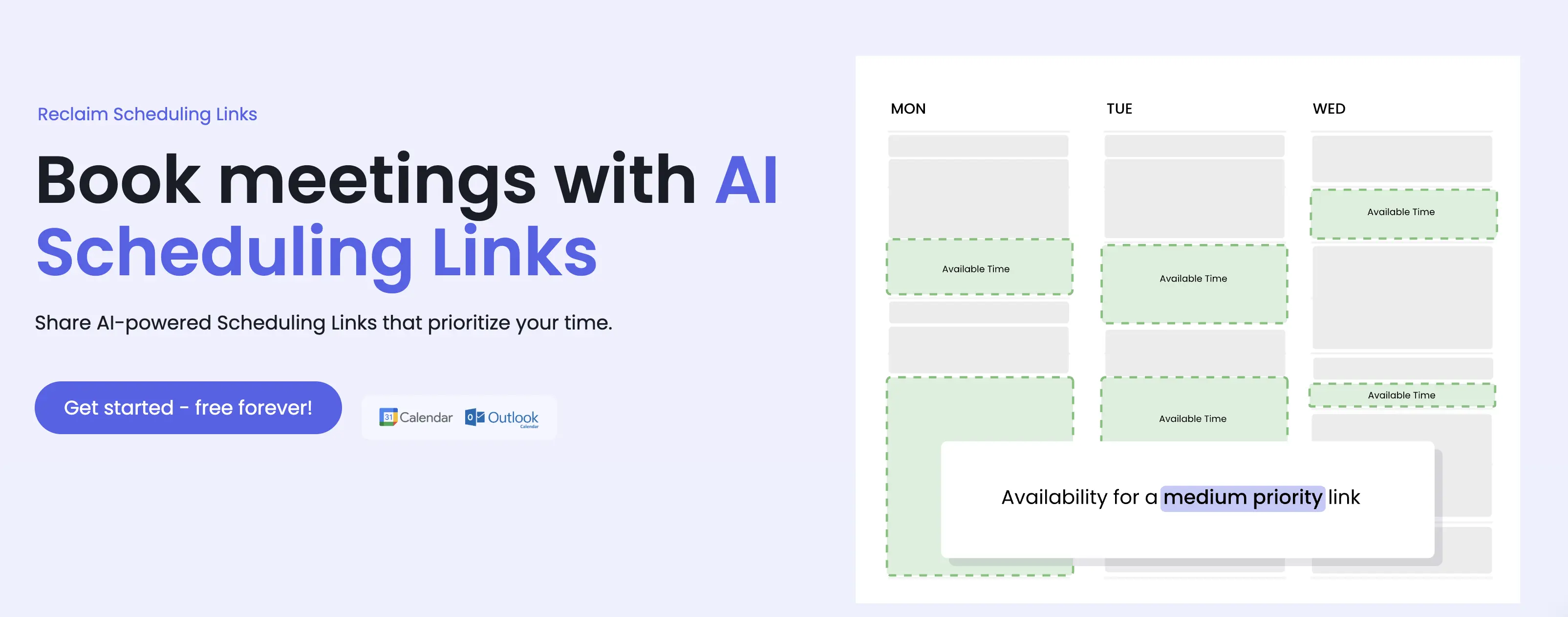
10. Coursebox
Particularly useful for: all teachers
With Coursebox’s AI Assessment tool, your students don’t have to wait for days to receive responses, as it can automate grading based on your marking rubric and criteria. Moreover, it can provide instant answers and rewards to students, meaning high engagement and motivation through timely feedback.
In practice: An English teacher can use rubrics to have essays graded instantly with feedback.
Pricing: Creator plan is 13$/month. See more on pricing.
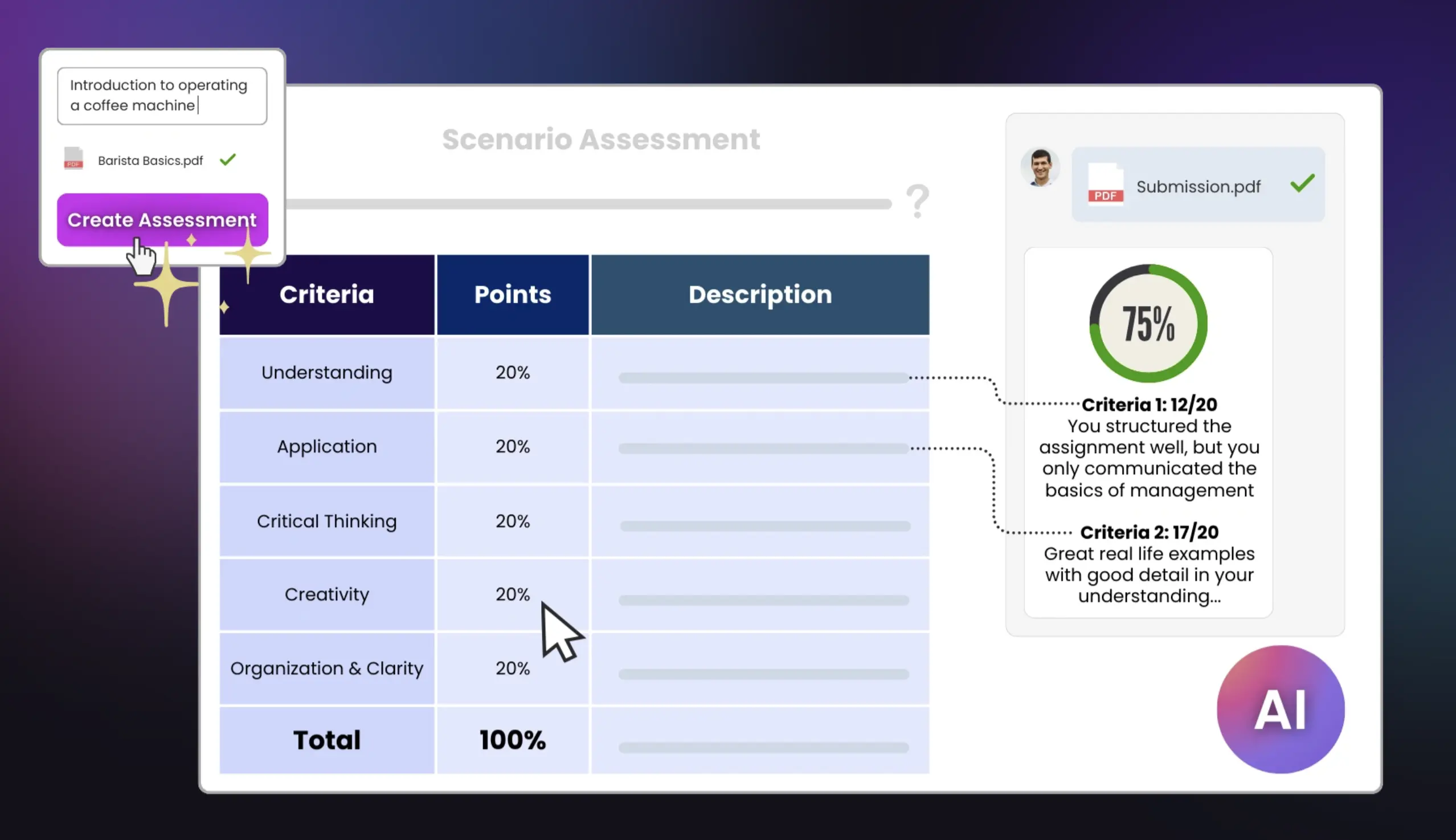
11. Visme
Particularly useful for: all teachers
Whether you’re creating a presentation, infographic, or interactive assignment, Visme’s fully customizable templates are perfect for crafting visual content that sticks. Its drag-and-drop interface makes it really easy to design engaging class materials with animated icons, illustrations, special effects, and more.
In practice: A history teacher can design engaging timelines and infographics for class projects.
Pricing: Free plan available; Starter plan is $29/month. See more on pricing.
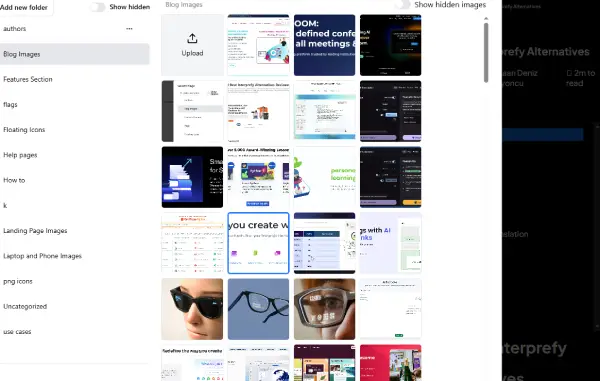
12. Wolfram|Alpha
Particularly useful for: high school math teachers
From calculus to linear algebra, Wolfram|Alpha can give step-by-step solutions and generate graphs and visuals of mathematical concepts. It also understands natural language input, meaning teachers can type in math problems using everyday language and get the appropriate results.
In practice: A math teacher can generate step-by-step solutions for complex calculus problems.
Pricing: Free Basic plan available; Pro plan is $9.99/month. See more on pricing.
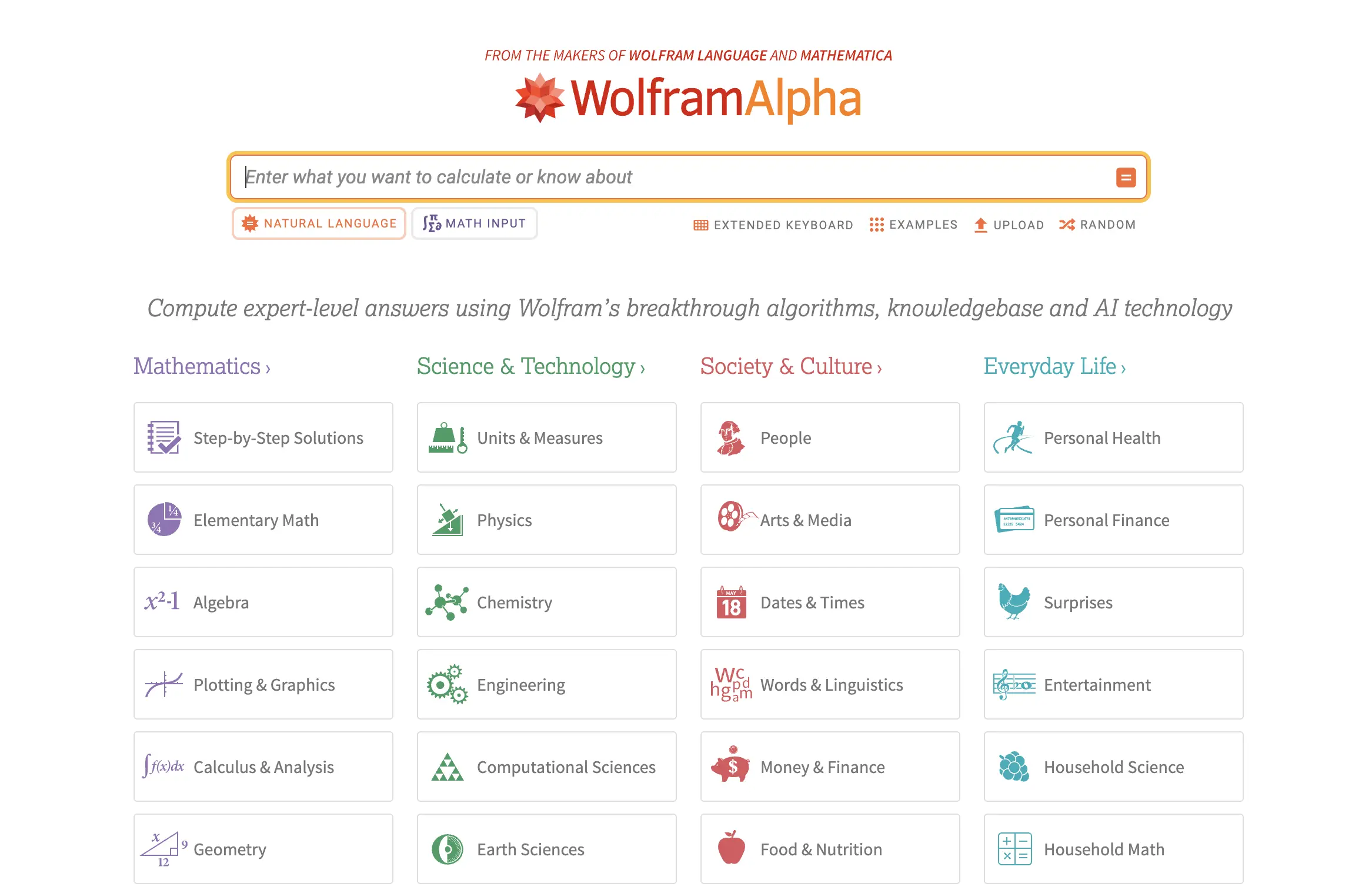
13. Duolingo
Particularly useful for: language teachers
With its AI-powered features, Duolingo can adapt to each student’s learning pace and progress, helping improve their pronunciation and fluency. Its GPT-powered writing and speaking activities serve as excellent supplementary tools for language teachers, whether as homework or in-class practice.
In practice: A language teacher can assign adaptive speaking exercises as homework.
Pricing: Duolingo for Schools is 100% free.
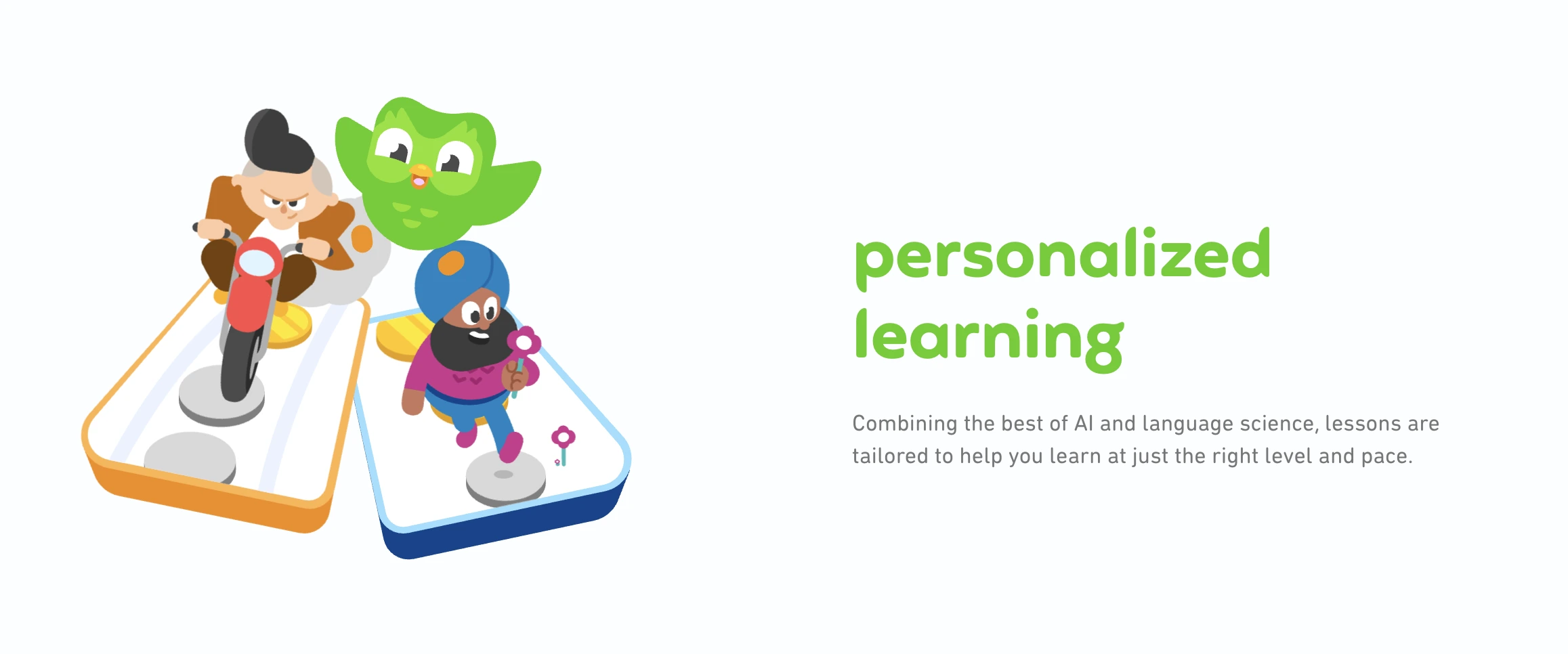
14. Tynker
Particularly useful for: elementary and middle school STEM teachers
Tynker is known for its interactive games, puzzles, and projects that introduce students to key coding principles such as loops, conditionals, and debugging. Besides utilizing AI for personalized learning, it smoothly transitions students from block-based coding to text-based programming languages, which is highly beneficial as they advance in their coding skills.
In practice: An elementary teacher can introduce coding basics through fun block-based games.
Pricing: Free plan available; tailored pricing for classrooms, schools, and districts.
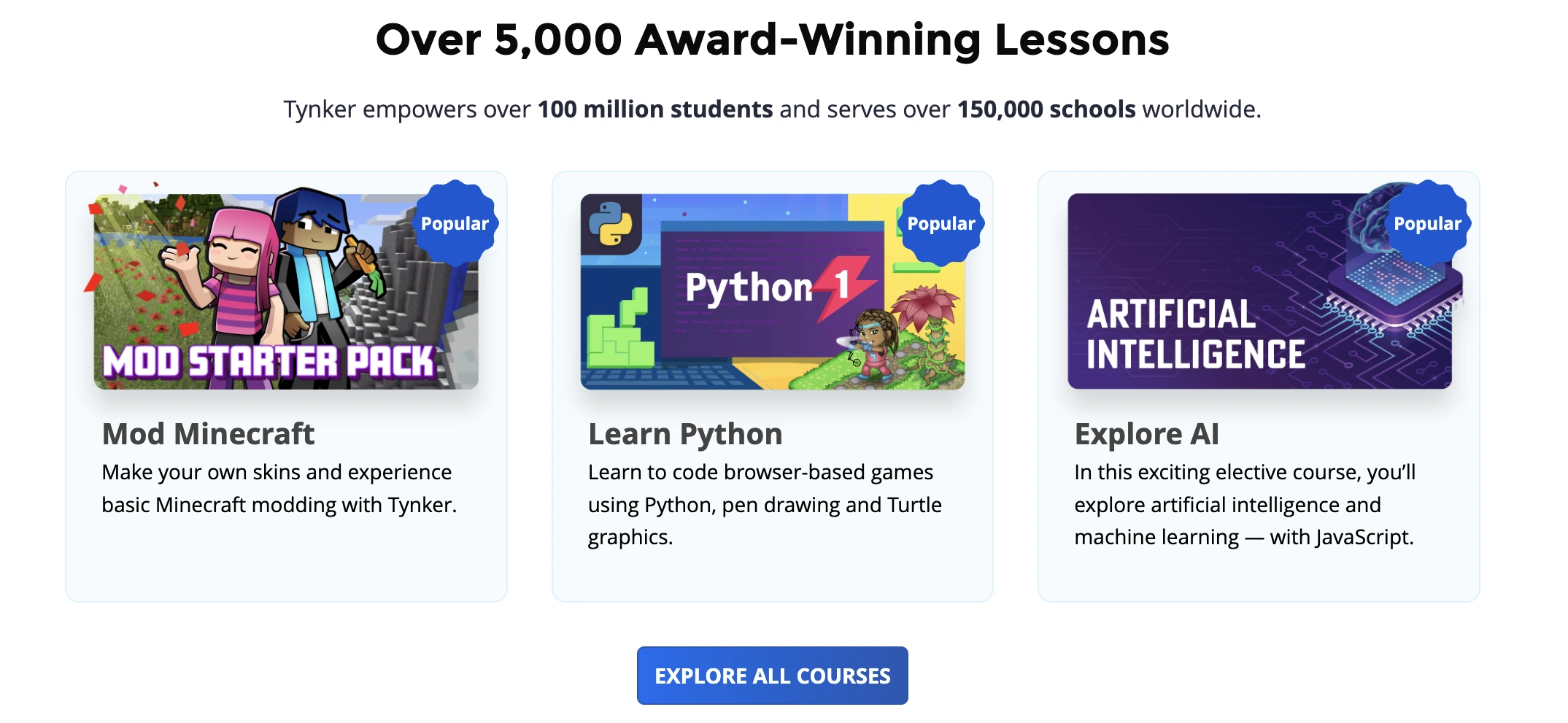
15. Speechify
Particularly useful for: teachers who have students with dyslexia or visual impairments
As an AI-powered text-to-speech (TTS) tool, Speechify makes reading materials more accessible by turning textbooks, class notes, articles, and PDFs into audio. With customizable features like adjustable reading speeds and the ability to highlight sentences as they are read aloud, Speechify can significantly enhance comprehension and focus.
In practice: A teacher can provide audiobooks of class texts for students with dyslexia.
Pricing: Enterprise plans for schools or teams. See more on pricing.
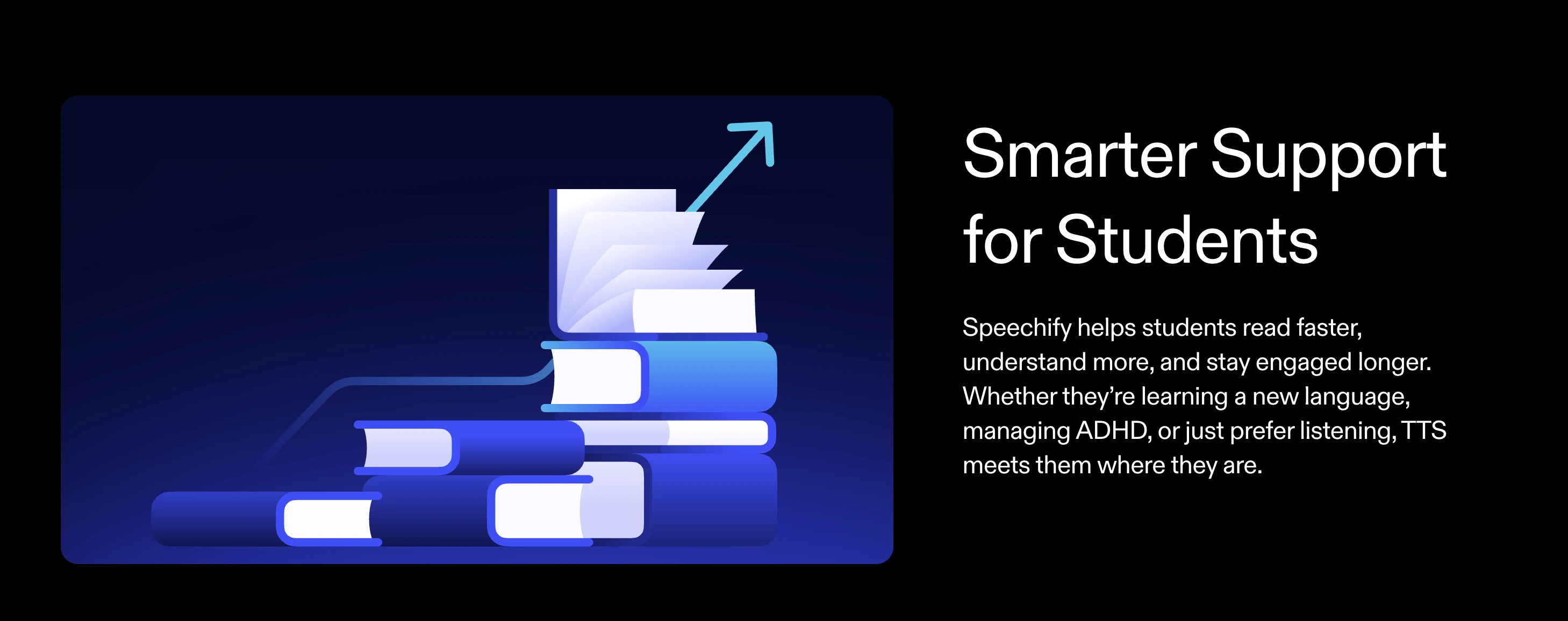
7 Best Practices for Teachers Using AI in the Classroom
While these AI tools provide teachers with powerful ways to create high-quality instructional materials and streamline daily tasks, their real impact comes from how they are integrated into the classroom. Used thoughtfully, they can boost student engagement, make learning more inclusive, and save time for teachers to focus on what matters most; building strong connections with their students.
At the same time, embracing responsible AI is essential. Teachers must balance innovation with care, ensuring these tools are used ethically, transparently, and in ways that truly support learning. Here are 7 best practices to guide you as you bring AI into your teaching:
- Balance technology and traditional methods. Never forget the “human side” of teaching, and blend AI tools with personal interactions for a well-rounded learning experience.
- Always maintain human oversight. Even the best AI tools can make mistakes, so make sure you review and interpret AI-generated content and results.
- Prioritize data security. Use AI tools that comply with data privacy regulations and protect student information.
- Promote digital literacy among your students. Educate them about AI and its implications to develop critical thinking skills regarding technology.
- Stay ethical. Ensure the AI tool does not reinforce bias, and strive to use AI in a way that benefits every student equally.
- Monitor AI’s effectiveness over time. Regularly assess the tool’s impact on teaching and learning outcomes by analyzing feedback and data.
- Keep up with developments in edtech. Stay updated on new tools and features to maximize the potential of AI in your classroom.

Conclusion
Teachers today face growing demands, from keeping students engaged to managing countless administrative tasks. AI tools can be a powerful time saver, giving educators the freedom to focus less on repetitive work and more on meaningful teaching.
Looking ahead, the role of AI in education will only continue to expand. As these tools evolve, we can expect even smarter personalization, stronger accessibility features, and deeper insights into student performance. AI will not only change how teachers work but also reshape how students learn, empowering every classroom with new possibilities.
Frequently Asked Questions
What is the best free AI tool for teachers?
For many teachers, the best free AI tool is ChatGPT, since it helps with brainstorming, lesson planning, and simplifying communication. Duolingo for Schools is also completely free, making it a great choice for language learning. Similarly, Canva’s free access for K-12 teachers makes it easy to design engaging, accessible classroom materials.
What is the best generative AI tool for teachers?
The best generative AI tool for teachers depends on their classroom needs. ChatGPT is a versatile choice because it can generate lesson ideas, activities, and even parent communication drafts. Gemini can also support teachers with research, real-time collaboration, and quick content generation, making it a strong complement to ChatGPT.
What is the best AI content generator for teachers?
Teachers who want to create content that captures student attention often turn to Canva or Visme. These tools allow educators to design presentations, infographics, and interactive assignments in minutes. Meanwhile, Kahoot! makes it simple to turn class materials into fun, interactive games that boost engagement.
Which AI tools save the most time on lesson planning and grading?
The tools that save the most time are MagicSchool AI for lesson planning and Coursebox for grading. MagicSchool AI helps teachers design comprehensive lessons quickly, while Coursebox automates assessments and feedback. Both significantly reduce administrative work and free up time for teaching.
Can AI personalize learning for students with different needs and abilities?
AI is especially powerful for meeting different learning needs. For instance, Maestra can provide live translations and captions so students who speak different languages can follow lessons in real time. Meanwhile, Speechify turns written materials into audio, helping students with dyslexia or visual impairments access the same content as their peers.
Which AI tools are easiest to learn for a teacher who’s not very tech-savvy?
The easiest AI tools for non-technical teachers are those designed with simplicity in mind. Canva, Quizizz, and Kahoot! all provide ready-to-use templates and intuitive dashboards. With them, teachers can create lessons or activities quickly without worrying about technical details.
How can teachers use AI ethically and responsibly in the classroom?
Teachers can use AI responsibly by keeping human oversight at the center of every decision. They should double-check AI-generated content for accuracy and bias before sharing it with students. Protecting student data is also a key part of of ethical AI use.
